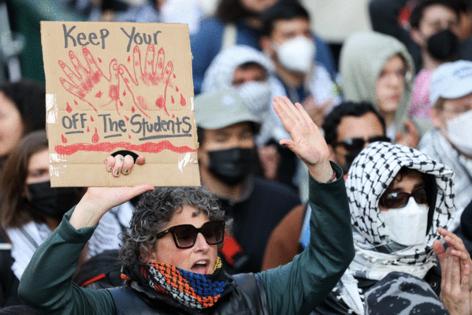COUNTERPOINT: Crackdown on international students is a self-inflicted wound?
Published in Op Eds
Recent detentions and deportations of international students have sparked controversy, raising concerns about the long-term damage to the United States’ reputation as the global leader in higher education. Meanwhile, the increasing number of U.S. students studying abroad underscores the importance of international academic exchanges.
Several high-profile cases have highlighted the chilling effects of the Trump administration’s heightened immigration enforcement. For instance, Alireza Doroudi, an Iranian doctoral student; Rumeysa Ozturk, a Turkish Fulbright doctoral fellow; and Kseniya Petrova, a Russian scientist at Harvard, were detained or faced deportation. These cases raise alarms over academic freedom and free speech.
These incidents reflect a broader trend of increased scrutiny, with the government justifying its actions by citing national security concerns. However, the actual effect has been a rise in fear among international students, leading many to limit their participation in campus life or reconsider their academic futures in the United States.
As someone who came to the United States as an international student and a former global education professional, I have experienced the opportunities and challenges of studying here. The promise of academic excellence and cultural exchange has traditionally made the United States an attractive destination.
However, policies that create uncertainty and fear among students risk diminishing the appeal that has drawn so many to this country.
For decades, the United States has been the top destination for international students. According to the Open Doors 2024 Report, more than 1.1 million international students were enrolled in American institutions during the 2023-2024 academic year, contributing $50 billion annually to the U.S. economy. Universities that rely heavily on international students are concerned that restrictive immigration policies will reverse this trend, leading to financial strain.
The consequences could be severe if the United States continues to foster an unwelcoming environment. Prospective students may begin to associate studying in America with insecurity and the risk of deportation.
Meanwhile, the number of U.S. students studying abroad continues to rise. In the 2022-2023 academic year, nearly 281,000 U.S. students studied overseas, a 49 percent increase from the previous year. While American students benefit from cross-cultural experiences abroad, the U.S. government is creating barriers for international students to have similar opportunities within its borders. This imbalance could weaken and endanger reciprocal exchange programs, making it more difficult for U.S. students to secure opportunities abroad if their home country is perceived as hostile to international education.
International students play a critical role in advancing research and innovation. Nearly 54 percent of doctoral students in STEM fields are from abroad, helping to fill gaps in U.S. scientific and technological development. A decline in international enrollment could slow research output and damage America’s competitive edge in global innovation.
Businesses, particularly in tech and engineering, may struggle to fill vital positions without a steady influx of highly skilled international graduates. Companies could relocate research and development centers to countries with more favorable immigration policies.
These policies risk damaging international relationships. The treatment of international students often reflects broader U.S. attitudes toward cooperation with other countries. Alienating future global leaders could have lasting diplomatic and economic consequences, as these individuals may later influence policies less favorable to U.S. interests.
The United States must recalibrate its approach to international students to avoid these risks. A balance must be struck between national security concerns and maintaining the country’s attractiveness as an educational hub.
The detention and deportation of international students not only harms these individuals but also has profound consequences for U.S. institutions and the broader economy. Universities, research centers and industries that rely on the influx of international talent could face significant setbacks that limit innovation and research progress.
Additionally, decades of sustained efforts by universities to globalize their programs and identities could be undone.
The continued rise of U.S. students studying abroad highlights the enduring value of international education. The United States risks ceding its intellectual dominance to more welcoming nations. In a world increasingly defined by knowledge economies, this shift would be a self-inflicted wound with lasting consequences.
____
ABOUT THE WRITER
Yehuda Lukacs is associate professor emeritus of global affairs and former associate provost of international programs at George Mason University. He wrote this for InsideSources.com.
___
©2025 Tribune Content Agency, LLC




























































Comments